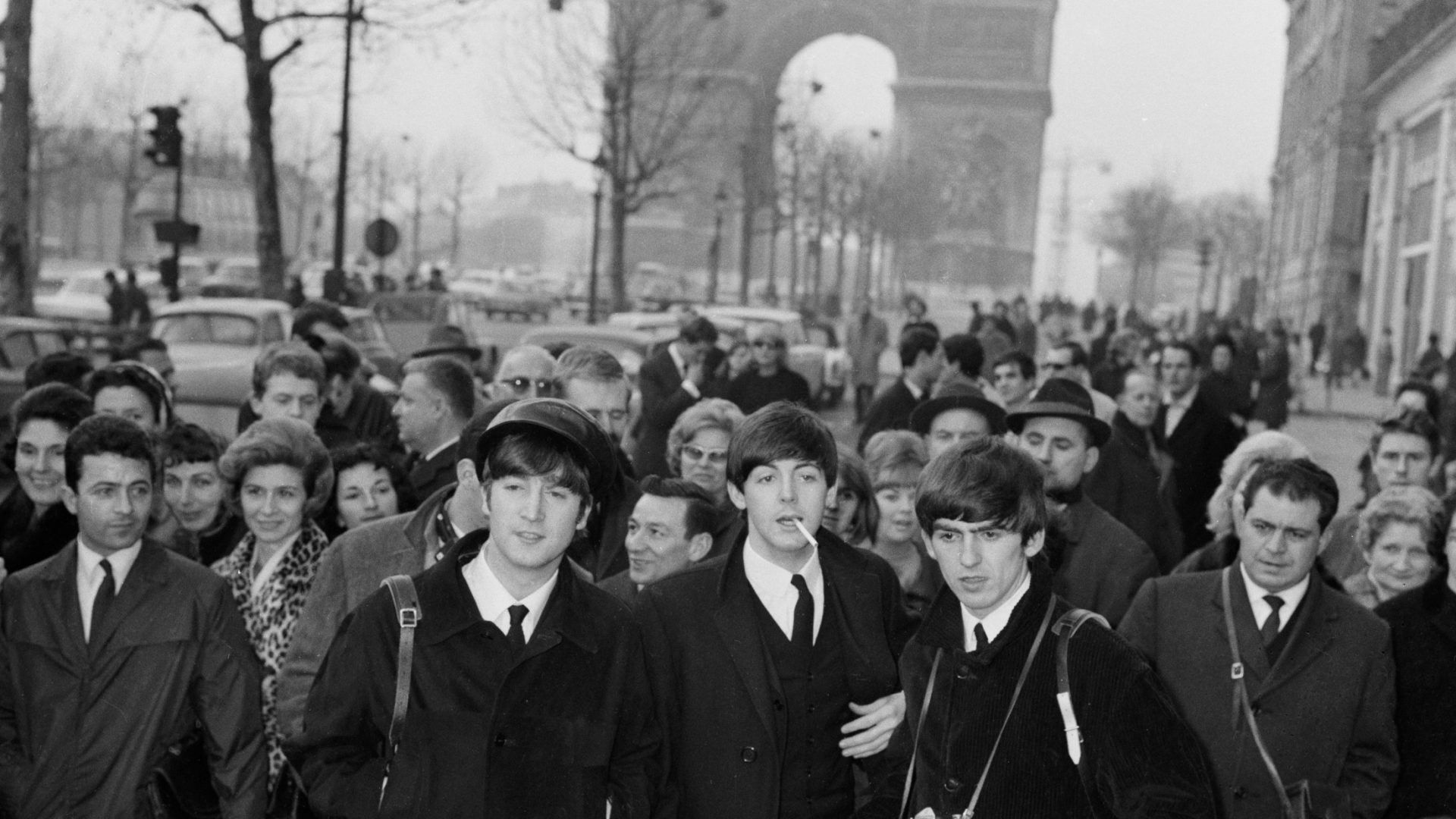It is a sign of the times that another election rout by the right is met with little more than a shrug of the shoulders across the western world. So it was in late May when, in their local elections, the Spanish voted in droves for not just the mainstream conservative Partido Popular (PP) but also the far right Vox.
The response of the humiliated prime minister, Pedro Sánchez – to call a snap general election, saying it was time for the people to “take the floor and define the country’s political direction”, is a high-risk strategy.
The issue in continental Europe is no longer where the populist right is in the ascendancy, but where it is not. Portugal anyone? The Czech Republic did well in resisting the scourge in January. The Balts are hanging on in there. We’ve seen it all since 2016. And before that, you could add in Silvio Berlusconi, the Austrians, and previous incarnations of the Dutch for good measure.
Something different, however, is happening now. Not only are once-respectable Christian Democratic parties moving into the nationalist-populist space, but some of them are openly embracing extremist groupings.
Spain is a test case, which is why the events of the last few weeks, and now the next three months, are so important. After the ruling Socialists (PSOE) suffered a devastating series of reverses in regional and municipal elections, Sánchez’s announcement blindsided most of his ministers. His foreign secretary, José Manuel Albares, had just arrived in Bratislava for a security conference and was settling in for dinner. He had to dash back to Madrid for an emergency cabinet meeting.
José Manuel Albares’s decision was borne of some petulance, no little impetuousness, but also calculation. The initial reaction was: what on earth would make him think that voters would look upon him more benignly on July 23 than they had just done? After all, none of the economic or social fundamentals will have changed by then. Elections are invariably referendums on leadership.
Internationally, it is a highly risky and potentially damaging step. The election will take place just as Spain takes over from the Swedes the rotating presidency of the European Union – a privilege and responsibility that comes to each of the 27 member states less than once in a dozen years. For the institutions in Brussels, it is the last thing they wanted. The EU is already steeling itself for being led by the wild cards of Poland, from the summer of 2024, and Hungary in January 2025. It had assumed a more reliable and predictable six months under the Spanish.
Sánchez, unlike most of his counterparts on the centre left, does not do safety first. A relative unknown at the time, he took office in June 2018 by engineering and then winning the first no-confidence vote in Spanish history, removing the then-PP prime minister, Mariano Rajoy, after doing a deal with the Catalans and Basques.
The fragility of his government forced him to call snap elections twice in 2019, ruling at different times in different combinations, sometimes with the more avowedly socialist grouping, Podemos, at others with the regional parties. Last November, Sánchez announced plans to reform the crime of sedition that was used to imprison Catalan independence leaders. He also pardoned several of them. The nationalist right was up in arms.
Most of his term has been marked by crisis management. Spain initially had one of the highest Covid mortality rates; it quickly recovered thanks to some of the toughest restrictions on the continent. The economy has fluctuated between growth spurts and downward spirals.
Instead of retrenching, he has been quite happy to take on the right. In October 2019, the government carried through its plan to exhume General Francisco Franco from his grandiose mausoleum at the Valley of the Fallen, north-west of the capital – a shrine for the fascist leader’s many supporters. Sánchez declared, rightly, that it put an end to a “moral affront”, and that, wrongly, it would lead to national reconciliation.
A man who doesn’t shy from taking risks is now taking what might be his biggest yet. He had wanted to serve out his term, to the end of 2023, but he realised that if he did nothing, it would simply peter out.
Sánchez is banking on three things: that he has wrong-footed the right, which he has, but they will quickly get into gear; that he will force Podemos and another smaller left wing group, Sumar, to rally round him. But will it? Podemos was the biggest loser in the regional elections, all but wiped out in several areas. Its existing leadership is unlikely to give up without a fight. Sumar, which means Unite, is the bright new movement.
His biggest card, so he hopes, is fear of the far right in a country where memories of Franco and the civil war still run deep. The more the PP posits the idea of deals with Vox, the more undecided voters might opt to hold their nose and vote for Sánchez. Think of Joe Biden and the spectre of Donald Trump (though Sánchez is much younger and dishier than the American president).
This notion of “asymmetrical mobilisation” depends on galvanising a wide range of potential voters across the centre and left, and hoping that they will be more motivated than their opponents. The fact that the election is slated when Spain’s long summer holidays are under way makes turnout and the result even more unpredictable.
How dangerous is the Spanish right? Always eager to rile the liberal mainstream, Viktor Orbán tweeted his congratulations to Vox’s leader, Santiago Abascal, within minutes of the results being declared. “The right wing reconquista continues in Spain,” the Hungarian prime minister wrote alongside a picture of the pair shaking hands. He concluded his missive by saying: “The next step: parliamentary elections in July. Vamos, Santiago! Vamos, Vox!”
After winning outright control of two regional administrations, the city of Madrid and Andalucía, the PP’s leader, Alberto Núñez Feijóo, held out the prospect of a coalition with Vox to run six more – places like Valencia, Seville, and the Balearic Islands. Abascal responded by saying his party was open to “creating an alternative” movement to the socialists.
Three scenarios are likely to emerge after the general election, two of which could usher in the far right in some form. The most benign result would be a Sánchez victory, but that would be a stunning reversal in public sentiment.
Unlikely to gain a parliamentary majority, the PP could do nationally what it is already planning to do regionally and align itself with Vox. That would be a first for modern Spain, but hardly a first for Europe.
If the PP fails to win, Núñez Feijóo would almost certainly be ousted and the path would be clear for the far more charismatic head of the Madrid region, Isabel Díaz Ayuso, a woman who makes Giorgia Meloni (or Liz Truss for that matter) seem restrained. Ayuso, at 44 three years younger than Truss, came to prominence during the pandemic, when she took an aggressive stance against Sánchez’s heavy-duty lockdown.
Ayuso is either loved or loathed. T-shirts have been printed by her supporters representing her as the Virgin Mary. She is mobbed by crowds, adored for her embrace of Libertad, freedom.
While residents of other Spanish regions were ordered to stay at home, she allowed restaurants and bars to stay open with fewer restrictions. As a result, Madrileños partied – and died – in huge numbers. She remains defiant: “I would do it all over again,” she says.
She has adopted the Trumpian (and to a degree the Johnsonian) approach of offending her opponents wherever possible. She is known for lines like: “When they call you a fascist, you know you’re on the right side of history.”
She called Sánchez’s left wing coalition partners, Podemos, “worse than the virus”. A leading Podemos figure retorted by calling her a “healthcare terrorist”. And this, in case you have forgotten, is a politician from the PP, the supposedly mainstream centre right.
Ayuso still has some hoops to go through before snatching the top prize. For a start, she isn’t a member of the national parliament, the Cortes. And her party still has its leader, who will regard any kind of victory in July as a vindication.
Sánchez won’t go down without a fight, but the prospects are hardly propitious. Spain will then be the next domino to fall, not to the centre right, a once-respectable political movement, but to another manifestation of alt-right “national conservatism”.
Across Europe, the lines are now being blurred between traditional conservatives and far-right populists. Spain’s elections will be followed by Slovakia in September, and the all-important elections in Poland later in the autumn. Next year will be another round of polls, not least for the European Parliament in June. The danger is right at the door.




